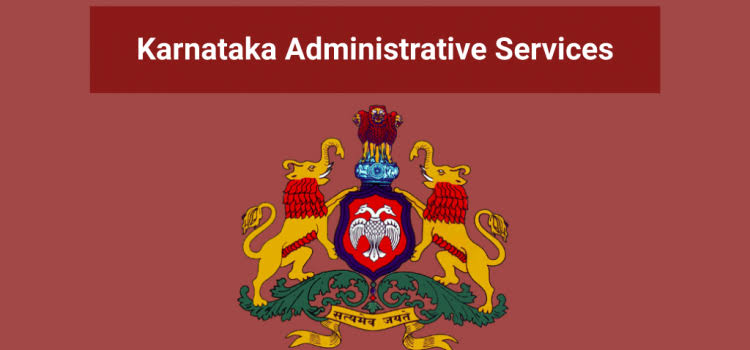This guide is designed to show you how you can use ChatGPT for business and leverage conversational AI in your organization. In today’s fast-paced digital landscape, businesses are constantly seeking innovative ways to engage customers, streamline operations, and gain a competitive edge. One technology that has been making waves in this regard is Conversational AI, particularly in the form of chatbots like ChatGPT. These intelligent systems are not just customer service tools; they are versatile platforms that can transform various aspects of an organization. This article delves into how businesses can leverage ChatGPT to optimize customer interactions, automate routine tasks, and even assist in decision-making processes.
What is ChatGPT?
ChatGPT is a conversational agent based on the GPT (Generative Pre-trained Transformer) architecture. It is designed to understand and generate human-like text based on the context of a conversation. Unlike rule-based chatbots that follow a set of predefined responses, ChatGPT utilizes machine learning algorithms to offer more dynamic, context-aware interactions. This makes it highly adaptable and capable of handling a wide range of tasks, from answering FAQs to providing personalized recommendations.
Customer Engagement and Support
24/7 Availability
One of the most immediately tangible advantages of integrating ChatGPT into a business infrastructure lies in its unparalleled capacity for delivering customer support that is available 24/7, 365 days a year. Unlike their human counterparts, ChatGPT systems are not constrained by the physiological and psychological needs that necessitate breaks, vacations, or rest periods. This ensures a level of availability that human agents simply cannot match, thereby offering customers the convenience and reassurance of knowing that assistance is always just a click away, regardless of the time of day or the day of the year.
Personalization
ChatGPT possesses the sophisticated capability to sift through and analyze a wealth of customer data, including previous interactions, to deliver highly personalized experiences that are tailored to individual preferences and behaviors. This goes beyond mere superficial personalization; it can involve intricate algorithms that recommend products or services based on a customer’s unique browsing history, purchase patterns, and even the time spent viewing particular items. Additionally, the technology can enhance the customer experience by incorporating personalized elements into interactions, such as addressing customers by their first names or referring to past purchases. These nuanced touches contribute to creating a more intimate and engaging customer experience, which in turn can significantly elevate levels of customer satisfaction and foster long-term loyalty.
Multilingual Support
Equipped with the capability to comprehend and engage in conversations across a multitude of languages, ChatGPT serves as a powerful tool for businesses aiming to broaden their market reach beyond English-speaking demographics. This linguistic versatility allows companies to effortlessly communicate with a diverse and global customer base, thereby breaking down language barriers that might otherwise hinder expansion. Importantly, this feature negates the necessity for businesses to invest in a specialized multilingual support team, which can be both costly and logistically challenging to manage. As a result, companies can more efficiently and cost-effectively tap into new markets, offering seamless customer support without the complexities and expenses associated with maintaining a linguistically diverse human workforce.
Operational Efficiency
Automating Routine Tasks
ChatGPT is adept at managing an array of routine yet essential tasks that are integral to the smooth operation of a business. These tasks can range from scheduling appointments and coordinating calendars to tracking customer orders in real-time and even performing basic data entry functions. By automating these repetitive and time-consuming processes, businesses not only achieve a higher degree of accuracy but also liberate their human resources from the drudgery of mundane tasks. This newfound freedom allows employees to channel their skills and attention toward more complex, intellectually challenging, and value-added activities, such as strategic planning, customer relationship management, or product development. In doing so, the organization can elevate its overall productivity and operational effectiveness, thereby gaining a competitive edge in the market.
Employee Onboarding and Training
ChatGPT can function as an invaluable interactive guide for new employees, serving as a go-to resource for a wide array of essential information that is crucial for a smooth transition into the company. Beyond merely disseminating basic details like company history or organizational structure, the system can engage in real-time dialogue to address any questions or concerns that new hires may have. This can range from clarifying job responsibilities to explaining the nuances of company culture. Furthermore, ChatGPT can administer quizzes or interactive modules focused on company policies, compliance requirements, or even role-specific tasks, thereby offering a more dynamic and engaging learning experience. This multifaceted approach to onboarding not only expedites the entire process but also ensures that employees are thoroughly prepared and well-equipped to contribute effectively from their very first day. As a result, businesses can achieve higher levels of employee satisfaction and retention, while also reducing the time and resources traditionally required for comprehensive onboarding.
Data-Driven Decision Making
Customer Insights
By analyzing the conversations it has with customers, ChatGPT can provide valuable insights into customer behavior, preferences, and pain points. These insights can be instrumental in shaping business strategies, from product development to marketing campaigns.
Real-Time Analytics
ChatGPT can be integrated with analytics tools to provide real-time data on customer interactions, engagement levels, and conversion rates. This enables businesses to make timely adjustments to their strategies and optimize performance.
Ethical Considerations and Compliance
While ChatGPT offers numerous advantages, it’s crucial to address ethical considerations such as data privacy and security. Ensuring GDPR compliance and transparent data usage policies can go a long way in building trust with customers and stakeholders.
Implementation Strategies
Pilot Testing
Prior to implementing ChatGPT on an organization-wide scale, it is highly advisable to initiate a series of carefully designed pilot tests. These preliminary trials serve multiple critical functions. First and foremost, they offer an empirical basis for evaluating the system’s overall effectiveness in fulfilling its intended roles, whether that be customer service, data management, or employee onboarding. Second, pilot tests provide an invaluable opportunity to identify any potential issues, glitches, or shortcomings that may not be immediately apparent. This could range from technical hiccups to gaps in the system’s understanding of specific industry jargon. By conducting these tests in a controlled environment, organizations can make data-driven adjustments and refinements to the system’s configuration, thereby preemptively addressing any concerns before they become widespread problems. This proactive approach not only mitigates risks but also optimizes the system for peak performance, ensuring that the eventual rollout is as seamless and effective as possible.
Continuous Improvement
Machine learning models thrive on data. Continuously monitoring performance and feeding new data into the system can help improve its accuracy and effectiveness over time.
Conclusion
ChatGPT is more than just a customer service tool; it’s a versatile platform that can revolutionize various facets of a business. From enhancing customer engagement to automating routine tasks and providing actionable insights, the applications are vast and varied. By understanding its capabilities and implementing it thoughtfully, businesses can unlock a new realm of possibilities and set themselves on a path to sustainable growth. We hope that you find our guide on how to use ChatGPT for business helpful, please leave a comment below and let us know if you have any questions etc.
Image Credit: Annie Spratt
Filed Under: Guides
Latest aboutworldnews Deals
Disclosure: Some of our articles include affiliate links. If you buy something through one of these links, aboutworldnews may earn an affiliate commission. Learn about our Disclosure Policy.





